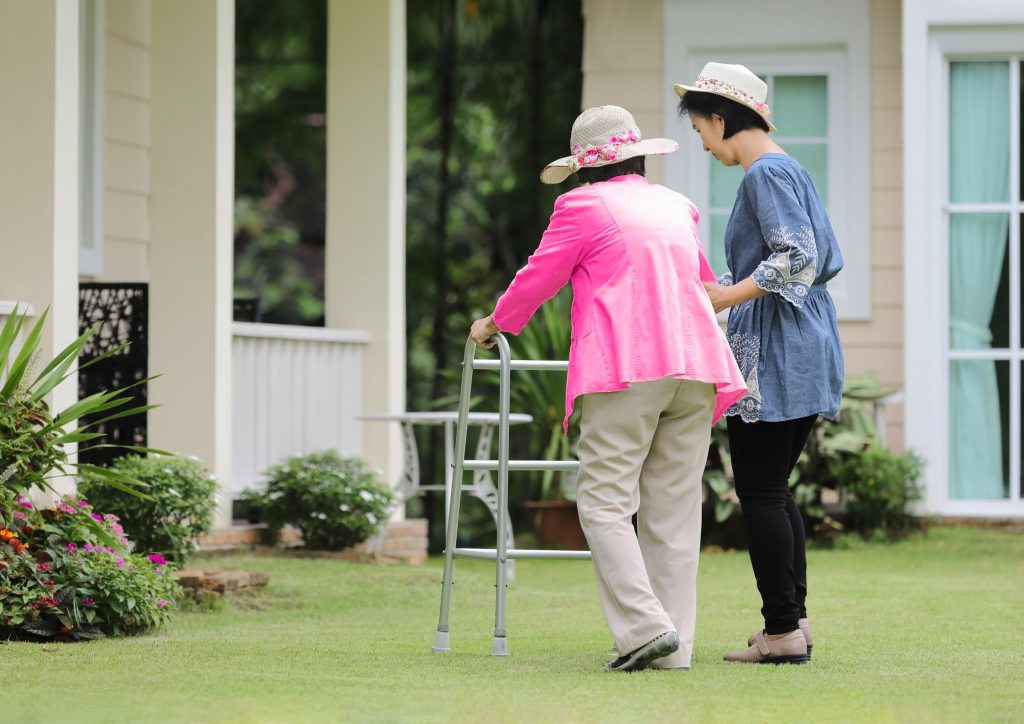How to Safely Remove your Parent From a Nursing Home
“Love begins by taking care of the closest ones – the ones at home.”
– Mother Teresa
Choosing to remove your loved one from a nursing home can be a difficult decision.
Some family members choose to go down this path for numerous reasons; their parents might require more specialised care, family members may have seen a deterioration in their parent’s overall health since living within the aged care facility or, simply feel that a nursing home was ultimately not the right choice for their loved one’s quality of life.
Whatever the reason may be, this guide tells you what you need to know when removing your parent from a nursing home.
Can I Remove My Parent From Their Nursing Home?
At the end of the day, it’s nursing home residents’ decision on whether or not they’d like to leave the facility.
If your parent can still make their own decisions about whether they want to leave their nursing home or aged care facility, legally you or any other family member cannot intervene without their consent. If your parent is not capable of making a decision, you can make that decision on their behalf.
If the decision is out of your hands, patience, open communication and just encouraging an earnest conversation with your loved one can help convince your capable parent to move out of their nursing home.
COVID-19 Impact
The COVID-19 pandemic hasn’t changed any processes on how to remove your parent from a nursing home. Each nursing home or aged care facility will have its processes and procedures for exiting the centre, so ensure that you follow them carefully. It is a good idea to be aware of the government’s COVID-19 advice for Aged Care Facilities and visitors if you do choose a path to exit.
While the pandemic hasn’t affected any exit processes in aged care facilities it has certainly changed many people’s sentiment on placing their loved ones in a nursing home. With very frequent outbreaks in aged care homes, may have doubts about the safety of some nursing homes. Research shows that 54% per cent of Australians are considering removing their parent from their nursing homes. Two out of three respondents said this would be a temporary move, while one in three consider removing their parent permanently and switching to home care.


Alternative Options To Nursing Homes
If you want to remove your loved one from a nursing home, there are two types of leave options available.
Temporary Leave
Temporary leave is an interim hold on receiving care for an elderly patient residing in a nursing home. If you’re unsure of your decision to remove your parent, but don’t feel that the facility is appropriate enough to ensure your loved one continues to have a quality of life, then you could consider removing them for a brief period while deciding.
There are other reasons someone might want to put their parent on temporary leave.
Emergency Leave
Emergency leave is available to aged care residents in the presence of a major disaster. For instance, if there is a disaster, like a fire at the facility, bushfire or flood, residents can utilise emergency leave to go stay with family for a while until the facility is safe again. Due to the COVID-19 pandemic, the Government has added epidemics and pandemics as reasons that residents can use the emergency leave option.
Social Leave
A nursing home resident can take 52 days of social leave in a financial year. You can take your parent out for more than 52 days of social leave but, the government will not subsidise these additional days. When on social leave, your parent can choose to receive in-home care during that period which, could be an option to help smooth the transition into home care if you ultimately want to remove your parent from the nursing home they reside in.
Permanent Leave
Permanent leave means that your loved one is choosing to remove themselves completely from the care of that specific facility and either into another nursing home that is more suited to their needs or, more commonly, choosing to utilise in-home care services.


Differences Between Home Care & Nursing Homes
There are various types of care available to your loved one besides nursing homes, and home care is a very popular option.
Benefits Of Home Care
There are many benefits of choosing to have home care, giving them more choice, autonomy and respect as every decision around their care is made on their own terms. These benefits can include:
- Continuing to live in the comfort of their own home
- Remaining connected to their local community
- Receiving care that is tailored to their personal needs
- Continuing to live independently and only receiving assistance when needed
- Access to a broad range of services to meet both medical and non-medical needs
- More control over how, and from whom, they would like to receive care
- Personalised services accommodated around their existing routine
Benefits Of Nursing Homes
It’s important to note that nursing homes and aged care facilities aren’t all the same. Just because your loved one might have had a bad experience with one, doesn’t mean that others are the same. Some general benefits nursing homes can provide include:
- Convenience for families as their parent’s care needs are no longer their responsibility
- A pre-created community with other elderly patients
- Access to pre-planned activities and social groups
- A secure facility with access to staff
Making The Right Decision
What type of care your parents want to receive will ultimately be their choice but, it is important to consider several factors that could help guide whether they want to receive care at home, in a nursing home or aged care facility.
It’s vital that you understand your loved one’s:
- Personal needs
- Medical needs
- Community, leisure and social activity interests
- The type of space that will make them most comfortable


Exiting Nursing Homes
As a nursing home resident, your parent can choose to leave or move to another service at any time without penalty.
Many families believe they will lose some or all of the lump sum they have paid for their parent, or that they need to wait for the nursing home to find a new resident to replace their parents before they get their money back, this is not necessarily the case.
The Department of Health has outlined how lump sums and refunds are calculated for residential aged care. It will depend on the date of when the resident moved into the facility and individual payment arrangements that are outlined in your agreement.
If you are unsure what refunds you are eligible for under your parent’s agreement. You can contact the Older Persons Advocacy Network to get additional advice about your parent’s situation and arrangement.
Making The Switch To Home Care
At Nurse Next Door Home Care Services we believe in choice, and if the time comes when you want to make the switch, we are here 24/7 to help you with a broad range of services including:
- Home Care
- Home Nursing Care
- NDIS Disability Support
- Palliative Care
- Alzheimer’s & Dementia Care
- 24-Hour Care
- Respite Care
- Companionship Care
- Care Management
- Personal Care
- Meal Preparation
- Transportation
Our Happier Ageing philosophy of care is about positivity and helps your loved ones maintain a sense of purpose and possibility as they age. Happier Ageing starts with a simple question “What did you used to love doing that you no longer do?”
With a positive outlook and an ability to age comfortably at home, your loved ones are empowered to keep living their life to the fullest because there is no place like home.


At Nurse Next Door, we are celebrating ageing and are passionate about Making Lives Better.
To learn more about The Power of Happier Ageing you can download our report
or contact us today on 1300 600 247 to discuss how Nurse Next Door can help you keep doing what you love.
